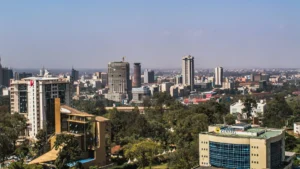Across Africa, Small and Medium Enterprises (SMEs) are emerging as pivotal drivers of inclusive growth, job creation, and structural transformation. Often overlooked in macroeconomic analysis, SMEs are in fact the backbone of many African economies — both in formal and informal sectors — and hold the key to sustainable development.
SMEs as Engines of Economic Diversification
In many African countries, economic reliance on primary commodities has historically limited structural transformation. SMEs play a vital role in economic diversification, particularly in sectors such as agribusiness, manufacturing, ICT, and services. By moving economic activity up the value chain, SMEs contribute to industrialization and reduce dependence on volatile commodity exports.
Employment Generation and Poverty Reduction
According to the African Development Bank, SMEs account for over 90% of businesses and nearly 80% of employment in the continent. This labor absorption capacity is critical in a region where youth unemployment and underemployment remain major developmental challenges. By offering accessible employment opportunities, especially in rural and peri-urban areas, SMEs serve as a tool for poverty alleviation and social inclusion.
Enhancing Local Value Addition and Resilience
SMEs contribute significantly to local value addition by utilizing local resources, knowledge, and labor. In doing so, they strengthen domestic supply chains, build economic resilience, and foster community-led development. This local embeddedness is particularly important for achieving economic sovereignty and sustainable livelihoods.
Catalysts for Innovation and Technology Adoption
Africa’s digital transformation is increasingly being shaped by agile, innovative SMEs. From fintech startups bridging the financial inclusion gap to agritech ventures improving productivity and climate resilience, SMEs are instrumental in technology diffusion and knowledge transfer. Their adaptability makes them crucial actors in building adaptive capacity in the face of climate and economic shocks.
Challenges and the Way Forward
Despite their potential, SMEs in Africa face persistent challenges: limited access to finance, inadequate infrastructure, burdensome regulatory environments, and weak linkages to regional and global markets. Addressing these requires:
- Strengthening access to credit through targeted financial instruments (e.g., credit guarantees, microfinance, impact investing);
- Investing in entrepreneurship ecosystems (incubators, accelerators, and technical training);
- Improving policy coherence and reducing administrative burdens for business registration and taxation;
- Promoting regional integration to expand market access through frameworks like the African Continental Free Trade Area (AfCFTA).
Conclusion: SMEs and the SDGs
The potential of SMEs to contribute to the Sustainable Development Goals (SDGs) — notably SDG 1 (No Poverty), SDG 8 (Decent Work and Economic Growth), and SDG 9 (Industry, Innovation, and Infrastructure) — is immense. Unlocking this potential requires deliberate, multi-stakeholder efforts that place SMEs at the heart of Africa’s development strategy.
In the end, investing in SMEs is not just about business — it’s about building resilient economies, empowering communities, and shaping an inclusive future for Africa.



